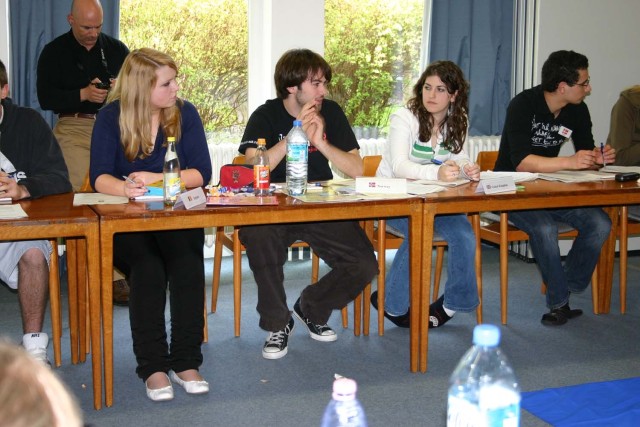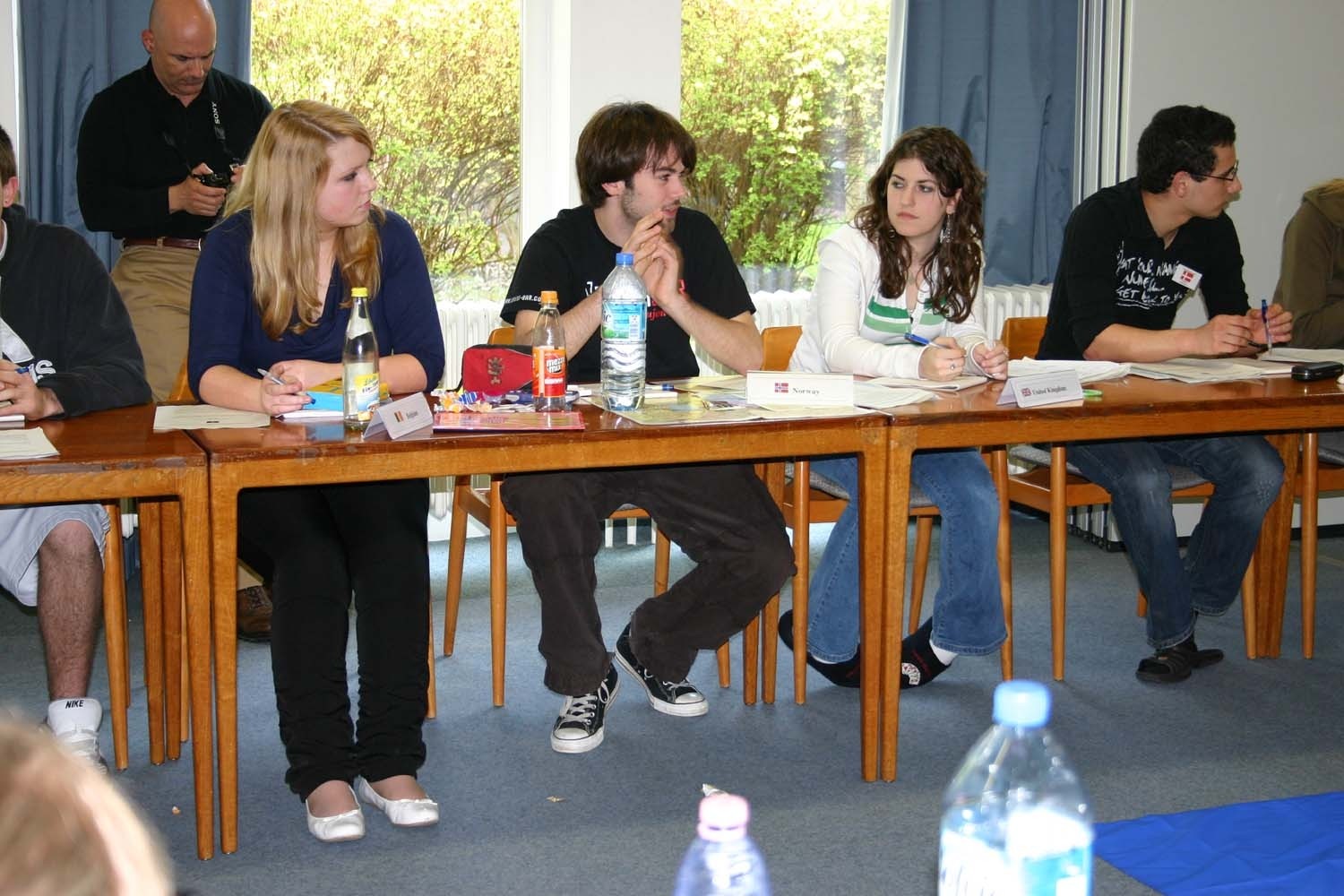SCHWEINFURT, Germany - Nineteen high school students from Wuerzburg and Ansbach American High Schools joined local area students for a trip to Sambachshof near Bad Koenigshofen to take part in the 24th annual seminar sponsored by the Bavarian State Center for Political Education to promote North Atlantic Treaty Organization (NATO) awareness.
"Originally, back at the beginning, the seminars were meant as a way of expressing gratitude for the Americans who served in Bavaria. Bavarian state government is the only state government that did and does this," said Andreas Kolitsch, an organizer of the event from the Bavarian Ministry of Education in Munich.
The 24th annual seminar teamed the American high school students with 16 students from Gymnasium Miesbach and Otto-Schott-Gymnasium Jena.
The highlights of the seminar included a field trip to Point Alpha in Rasdorf - what used to be a cold war border observation area and is now a museum and memorial place - and an all-day simulation of the North Atlantic Treaty Organization Council.
"(During the Council) The students take on the roles of ambassadors to NATO. They are faced with a crisis and need to deliberate and come to a consensus of how NATO as a whole should react to the crisis," said Tamir Sinai, developer and trainer for security simulations, as he described the students' task for the day.
"During the simulation, they learn how to work out a problem, make up their minds, and defend their opinions ... and they gain a lot of knowledge, details about history and politics," said Kolitsch.
The 35 students, divided into groups representing each country, were presented with a simulated crisis and given approximately seven hours to come to a resolution.
"I really never knew what (NATO) stood for, who was involved, and what they did," said Courtney Edwards, WAHS sophomore, explaining how participation in the simulation answered many of her questions.
"It's really hard to get a compromise and respect each country's opinion," said 12th-grader Benedik Kirzeder, a German participant.
One aim of the entire seminar was to teach the students about history and politics, but the second aim was to promote interaction between German and American students.
"The main point of the seminar is to promote friendships among the kids and get to know kids their own age," said Nina Fortson-Leno, world history and German language teacher at WAHS.


Social Sharing